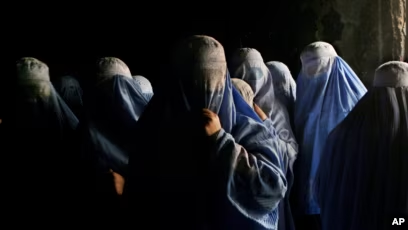KABUL: On the fourth anniversary of the Taliban’s rise to power, the United Nations issued a statement indicating that the life expectancy and health standards of women in Afghanistan have declined, with the Taliban having issued nearly 100 restrictive decrees against women that have had devastating consequences on their lives. According to the report, over 78% of Afghan women lack access to education and employment opportunities. Continuing education for girls has become virtually impossible, and finding work for women is exceedingly difficult. This situation has removed half of the country’s potential workforce from the economy, exacerbating the economic crisis. The UN has warned that maternal mortality rates could increase by 50% by 2026 due to the lack of adequate healthcare services for women. Discriminatory policies by the Taliban, including the ban on women’s higher education and restrictions on consultations with male doctors, are major contributing factors to this crisis. Additionally, the rise in child marriages and domestic violence in Afghanistan is alarming, with some Taliban officials involved in enforcing forced marriages. Sixty-two percent of women feel they have no role in family decision-making. Susan Ferguson, head of the UN Women’s Office in Afghanistan, described these restrictions as a threat beyond Afghanistan, warning that the continued oppression of Afghan women could signify a global neglect of women’s and girls’ rights.




